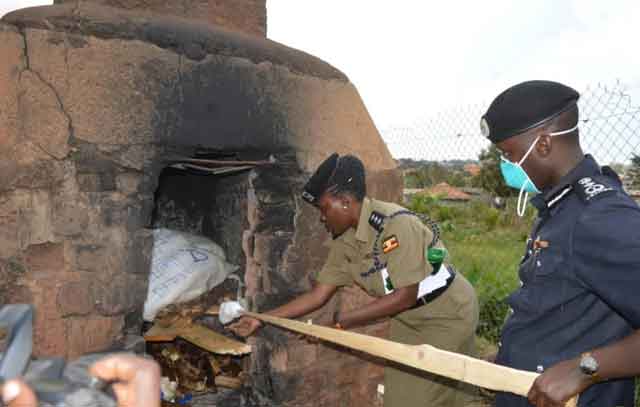
Kampala, Uganda | THE INDEPENDENT | Records at the Anti-Narcotics Unit at Criminal Investigations Directorate –CID show that 7,328 people have been arrested in the last two years for illegally buying, selling and smoking of intoxicating drugs.
The data gathered is part of the reflection on the contribution of specialized police units in fighting local and cross border crime. At least 3,738 suspects were arrested last year which was an increase by 148 more suspects compared to culprits of 2018.
The Narcotics unit is headed by Superintendent of Police –SP Tinka Zarugaba but it is under CID director AIGP Grace Akullo. CID explains in the report that even though the number of suspects increased last year, but the total number of cases decreased by a 4.8 percent.
“Two thousand seven hundred fifty cases of narcotics were reported in 2019 compared to 2,890 cases in 2018 reflecting a decrease of 4.8%. Heroine had the largest quantity seized at Entebbe International Airport 123.07Kgs in 2019 and 31.7Kgs in 2018, an increase of 91.37Kgs,” Akullo indicates in the report.
A senior narcotics investigator said on the black market a kilogram of heroine on average costs 10,000 United States Dollars. This means 123kg of heroine seized last year were valued at 4.5 billion shillings.
“Heroine prices on the black market have been ranging from US$10000 to 15000 a kilo. But because of Corona Virus Disease [Covid19] that has seen Airports closed, the prices now rotate between 10000 and 12000 USD. We keep monitoring these trends for our investigations,” a senior police detective at CID said.
Akullo further indicates that 2019 show narcotics cases drop because of the enactment of Anti-narcotics and Psychotropic substances control Act which has stringent punishments. Section 4 (2) of the Act states;
“A person who commits an offence is liable on conviction in respect of a narcotic drug listed in the Second Schedule to a fine of not less than five hundred currency points or three times the market value of the drug, whichever is greater; or to imprisonment of not less than ten years but not exceeding twenty-five years, or both.”
Other reasons Akullo cites for reduced narcotic cases include continued sensitisation against trafficking of narcotics, increased operations against narcotic traffickers, and Increased destruction of gardens of Cannabis Sativa.
Asked on whether drug traffickers are still active during this Covid19 lock down, the senior police detective said drug dealers have now resorted to inland borders.
“Drugs traffickers are very creative. They come is solution for every prevailing challenge. We are investigating cases where many drug dealers secured essential services stickers during lock down. Others acquired stickers of essential service providing companies,” a senior police detective said.
Two weeks before Uganda went into lock down, CID had started investigating new tricks of drug traffickers were they could arrive in the country two to three days before their consignments could arrive.
“Strategies to control trafficking Narcotics at Entebbe International Airport include random checks on passengers, bags, documents and suspected vehicles picking and dropping passengers,” Akullo states.
Other mechanism to fight drug related crime include installed X-ray machines used to scan passenger’s bags, use of Canine sniffer dogs to search passenger’s bags, surveillance on passengers, cargo especially imports/exports, car parks and destruction of seized narcotics after the conclusion of the court processes.
Deputy Inspector General of Police –Maj Gen Stephen Muzeyi Sabiiti, in August last year destroyed drugs worth 5 billion shillings. This event held at Nsambya Police Barracks in Kampala District was also witnessed by Her Worship Mary Babirye, the Chief Magistrate Entebbe Court.
********
URN
 The Independent Uganda: You get the Truth we Pay the Price
The Independent Uganda: You get the Truth we Pay the Price



